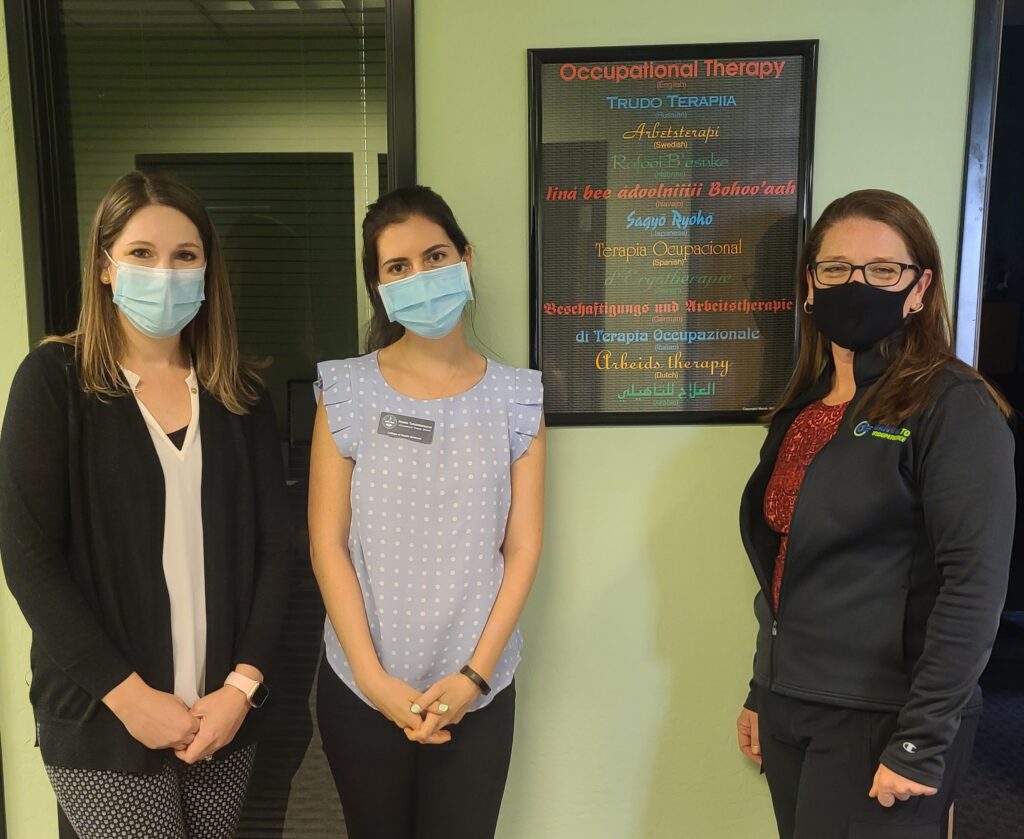
Although the name can be misleading, Occupational Therapists do not help people find jobs. They do work with people dealing with a medical diagnosis or challenge to help them determine how to participate in activities that are meaningful to them. So, in this context, occupation refers to anything that “occupies” your time. Occupational therapists work with people across their lifespan to address challenges that may require them complete their activities in a different or adapted manner.
Occupational therapists, or OTs as they are commonly known, work in a wide range of settings. Many OTs work in hospitals, rehabilitation centers and home health settings. Others work in schools, community aging centers, physician offices, and in private practice. The primary goal of OT is facilitating recovery from an acute or chronic illness or injury or condition to become stronger, develop skills or utilize adaptive equipment or methods to carry out their basic activities of daily living or occupations.
A person with a hip replacement, spine surgery or pneumonia will find challenges in completing tasks many do not think twice about. For example, getting dressed, driving, or reaching for items in the grocery store. In some cases, a person may need adaptive equipment to help complete these tasks while they recover or for as long as the condition persists. The OT will work with the individual to help determine what equipment will best meet their needs.
Sometimes, conditions require more time to recover, such as an amputation or traumatic brain injury. After the individual leaves the acute care setting, they may participate in outpatient therapy focusing on more challenging activities or occupations they would like to resume. An occupational therapy goal may be to achieve greater arm strength and hand coordination so their patient can cook a favorite meal again. Another goal may be to locate items in a cabinet or drawer independently for someone with low vision. There are too many examples to share!
OTs are great problem solvers! People are so uniquely different in their personalities, learning styles, interests, challenges, coping skills and support systems, that one solution does not work for everybody. Because Occupational Therapy covers such a broad area, some OTs choose to pursue advanced certification in specialized areas. Some of these areas include Assistive Technology, Autism, Brain Injury, Low Vision, Seating and Mobility, Hand Therapy and Driver Rehabilitation.
Driving is a highly complex task that most people view as one of the most important ways to maintain their independence. Driver Rehabilitation helps people who are facing challenges physically, cognitively, and visually due to aging, illness/injury or a developmental issue. OTs specializing in driver rehabilitation assess the individual to determine if they are safe to drive or would benefit from adaptive driving equipment and training to ensure they are or become an independent and safe driver. These specialists also assess and train younger people with a developmental condition, such as autism spectrum disorder, who haven’t started driving yet and may be find success in a typical driver education setting. Driving to Independence has therapists specializing in a wide variety of areas.
Occupational Therapy is a unique profession filled with people who want to work with you to facilitate your participation in activities most important to you.
